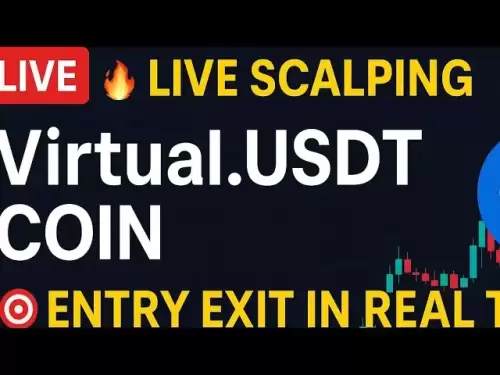-
 Bitcoin
Bitcoin $117,462.8204
-2.03% -
 Ethereum
Ethereum $3,061.1595
1.10% -
 XRP
XRP $2.9139
-2.19% -
 Tether USDt
Tether USDt $1.0002
0.02% -
 BNB
BNB $685.1357
-1.24% -
 Solana
Solana $161.3803
-2.11% -
 USDC
USDC $1.0002
0.04% -
 Dogecoin
Dogecoin $0.1948
-2.92% -
 TRON
TRON $0.2987
-0.89% -
 Cardano
Cardano $0.7330
-1.27% -
 Hyperliquid
Hyperliquid $47.7888
0.13% -
 Stellar
Stellar $0.4514
-2.93% -
 Sui
Sui $4.0169
2.74% -
 Chainlink
Chainlink $15.7088
-2.57% -
 Hedera
Hedera $0.2356
-3.33% -
 Bitcoin Cash
Bitcoin Cash $488.6656
-3.61% -
 Avalanche
Avalanche $21.2955
-1.47% -
 UNUS SED LEO
UNUS SED LEO $9.0415
0.42% -
 Shiba Inu
Shiba Inu $0.0...01332
-0.82% -
 Toncoin
Toncoin $3.0124
-0.62% -
 Litecoin
Litecoin $94.2175
-2.07% -
 Polkadot
Polkadot $4.0011
-0.61% -
 Monero
Monero $333.5714
-3.46% -
 Uniswap
Uniswap $9.1114
-1.56% -
 Dai
Dai $1.0000
0.02% -
 Ethena USDe
Ethena USDe $1.0005
0.00% -
 Bitget Token
Bitget Token $4.4951
1.87% -
 Pepe
Pepe $0.0...01242
0.47% -
 Aave
Aave $321.9943
0.51% -
 Bittensor
Bittensor $434.1984
5.13%
How to mine new and unknown coins?
Mining new and unknown coins can offer high rewards due to lower competition, but involves risks like scams and uncertain viability.
Jul 14, 2025 at 08:29 am
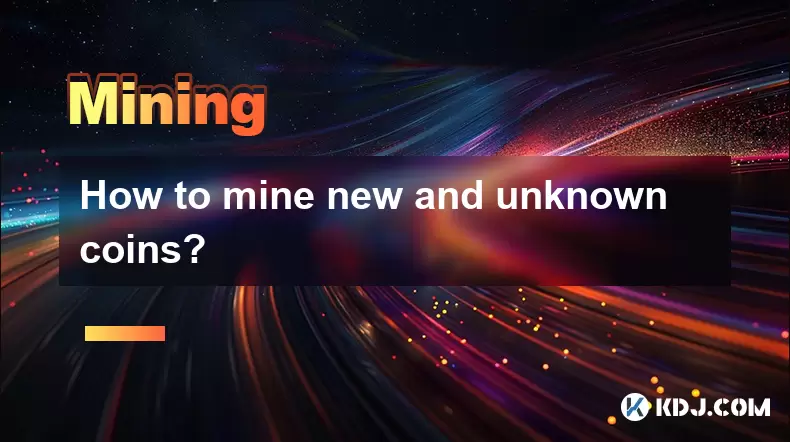
Understanding the Concept of Mining New and Unknown Coins
Mining new and unknown coins refers to the process of validating transactions and adding them to a blockchain for cryptocurrencies that are either newly launched or not widely recognized in the market. These coins often have lower mining difficulty due to fewer participants, which can offer higher rewards for early miners. However, they also come with increased risks, such as lack of community support, potential scams, and uncertain long-term viability.
To begin, it's essential to understand the type of consensus algorithm used by the coin. Most new coins use Proof-of-Work (PoW) or Proof-of-Stake (PoS). PoW requires computational power to solve cryptographic puzzles, while PoS relies on staking existing coins to validate blocks. Identifying this helps determine the required hardware and software setup.
Researching and Discovering New Coins Worth Mining
Before investing time and resources into mining, conduct thorough research to identify promising new coins. Platforms like CoinMarketCap, CoinGecko, and CryptoCompare list newly launched cryptocurrencies. Additionally, communities on Reddit, Bitcointalk.org, and Telegram often discuss emerging projects.
When evaluating a new coin, consider the following:
- Whitepaper quality and project roadmap
- Development team transparency
- GitHub repository activity
- Exchange listing status
It’s crucial to verify whether the coin has an active development community and if it's being discussed on reliable forums. A coin with no documentation or anonymous developers should raise red flags.
Setting Up the Required Mining Software and Hardware
Once you’ve identified a suitable coin, the next step is to set up your mining environment. For most new coins using Proof-of-Work, you’ll need mining software compatible with their specific hashing algorithm.
Common mining software includes:
- CGMiner – versatile and supports multiple algorithms
- BFGMiner – ideal for FPGA and ASIC mining
- NiceHash – allows renting hashing power
- XMRig – popular for RandomX and other CPU-friendly algorithms
Ensure your hardware meets the requirements:
- CPU mining: Suitable for lightweight algorithms like RandomX
- GPU mining: Better for memory-intensive algorithms like Ethash
- ASIC mining: Used for SHA-256 and Scrypt-based coins
Some new coins may require custom-built miners, which might be available on their official GitHub repositories. Always download software from trusted sources to avoid malware.
Joining a Mining Pool or Mining Solo
New coins often have low network hash rates, making solo mining a viable option. However, joining a mining pool increases the chances of earning regular rewards, especially if the block reward is inconsistent.
Steps to join a mining pool:
- Choose a pool supporting the coin you're targeting
- Register an account or use a wallet address directly
- Configure mining software with the pool’s server address, port, and login credentials
- Monitor hashrate and payout frequency through the pool dashboard
Solo mining requires setting up a full node of the coin’s blockchain. This involves downloading the blockchain explorer, running a wallet daemon, and configuring the miner to point to your local node. While more complex, solo mining ensures 100% block rewards without pool fees.
Securing and Managing Your Mined Coins
After successfully mining new coins, securing them becomes critical. Many unknown coins do not have official wallets, so you may need to compile one from the source code or use a third-party wallet.
Best practices include:
- Storing mined coins in cold storage once accumulated
- Using multi-signature wallets for added security
- Regularly backing up wallet files and private keys
- Avoiding exchanges that don’t support the coin until liquidity improves
If the coin gains traction, monitor its inclusion on exchanges. Listing on platforms like KuCoin, Bittrex, or BitMart usually signals growing interest and provides easier ways to trade or liquidate holdings.
Frequently Asked Questions
Q: Are there legal risks associated with mining unknown coins?
A: Mining itself is generally legal, but the legality depends on your jurisdiction and the nature of the coin. Some countries regulate or ban cryptocurrency activities, and mining coins associated with illegal activities can pose legal risks.
Q: Can I mine new coins using cloud mining services?
A: Yes, some cloud mining providers allow mining of lesser-known coins, but caution is advised. Many cloud mining services are scams or operate with high fees. Always verify the provider's reputation before investing.
Q: How do I check if a new coin is pre-mined or fair-launched?
A: Review the project’s whitepaper, blockchain explorer data, and community discussions. A fair launch means no coins were mined before public announcement, while pre-mining indicates allocation of coins to developers or insiders.
Q: What should I do if my mining software doesn't recognize the new coin?
A: Check the coin’s official repository or community forums for compatible mining tools. You may need to compile the software manually or request support from developer groups.
Disclaimer:info@kdj.com
The information provided is not trading advice. kdj.com does not assume any responsibility for any investments made based on the information provided in this article. Cryptocurrencies are highly volatile and it is highly recommended that you invest with caution after thorough research!
If you believe that the content used on this website infringes your copyright, please contact us immediately (info@kdj.com) and we will delete it promptly.
- Cantor Fitzgerald, Bitcoin, and SPAC Acquisitions: A New York Perspective
- 2025-07-16 10:30:12
- PoL v2 and BeraChain: Building a Stronger Blockchain Ecosystem
- 2025-07-16 10:30:12
- Bitcoin, Social Media, and FOMO: A New Yorker's Take on the Crypto Craze
- 2025-07-16 10:50:12
- GameStop, Bitcoin, and the Inflation Hedge: A New York Perspective
- 2025-07-16 08:30:12
- Tornado Cash on Trial: Privacy Tool or Money Laundering Machine?
- 2025-07-16 10:50:12
- Solana Memecoins Hit the Big Time: PUMP and Sonic Get Coinbase Listing Boost!
- 2025-07-16 06:50:12
Related knowledge
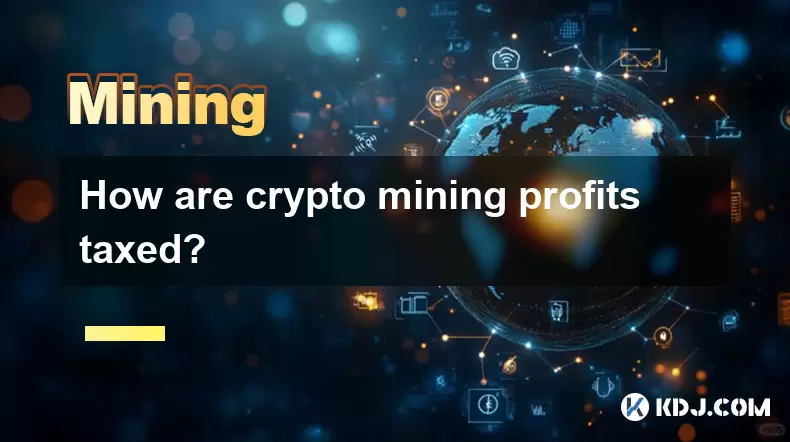
How are crypto mining profits taxed?
Jul 14,2025 at 12:28am
Understanding Cryptocurrency Mining and TaxationCryptocurrency mining involves validating transactions on a blockchain network and earning rewards in ...
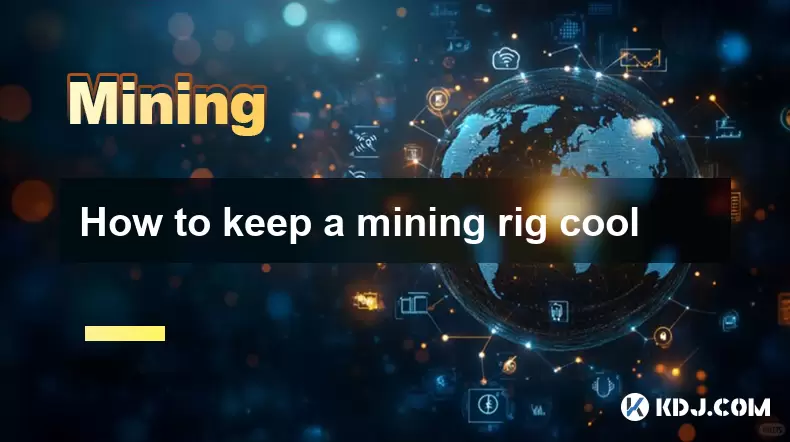
How to keep a mining rig cool
Jul 12,2025 at 01:42pm
Understanding the Importance of Cooling in Mining RigsCryptocurrency mining is an intensive process that places heavy demand on hardware components, p...
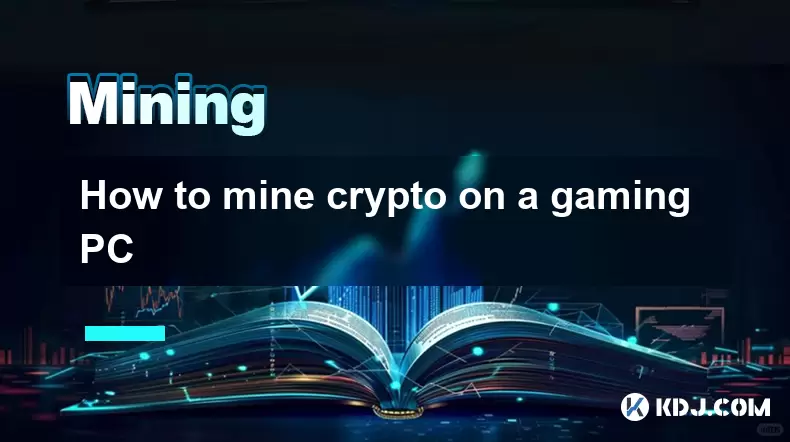
How to mine crypto on a gaming PC
Jul 16,2025 at 12:00pm
What is Crypto Mining on a Gaming PC?Crypto mining involves using your computer's processing power to validate transactions on a blockchain network. A...
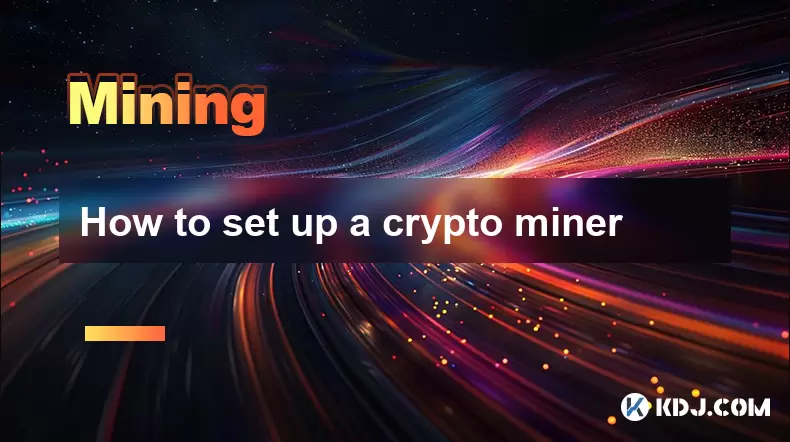
How to set up a crypto miner
Jul 16,2025 at 09:14am
Understanding Ethereum Gas Fees: What Are They and How Do They Work?Ethereum gas fees are a fundamental aspect of the network, representing the cost r...
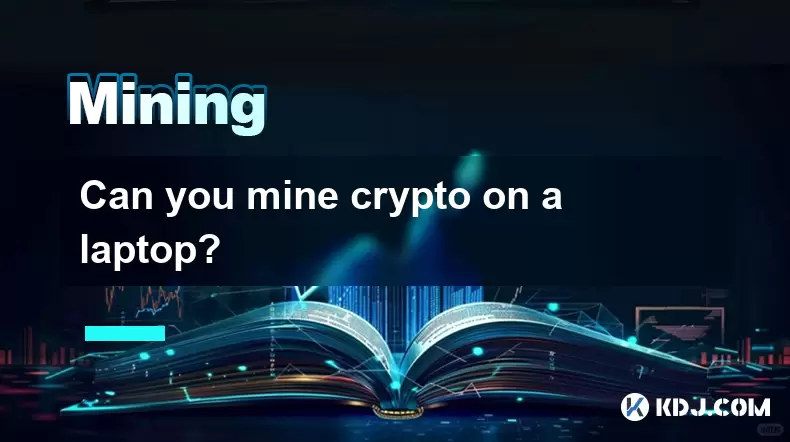
Can you mine crypto on a laptop?
Jul 16,2025 at 02:21am
Is It Feasible to Mine Cryptocurrency on a Laptop?Mining cryptocurrency on a laptop is technically possible, but feasibility depends heavily on the ha...
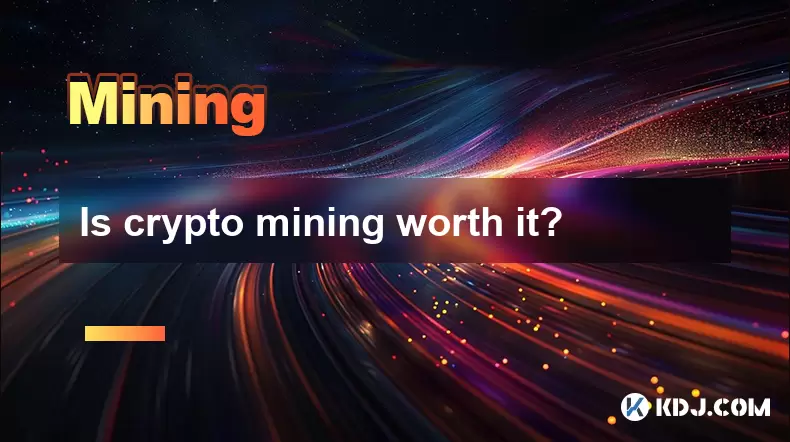
Is crypto mining worth it?
Jul 16,2025 at 01:21am
Understanding the Basics of Crypto MiningCrypto mining refers to the process of validating transactions on a blockchain network by solving complex mat...

How are crypto mining profits taxed?
Jul 14,2025 at 12:28am
Understanding Cryptocurrency Mining and TaxationCryptocurrency mining involves validating transactions on a blockchain network and earning rewards in ...

How to keep a mining rig cool
Jul 12,2025 at 01:42pm
Understanding the Importance of Cooling in Mining RigsCryptocurrency mining is an intensive process that places heavy demand on hardware components, p...

How to mine crypto on a gaming PC
Jul 16,2025 at 12:00pm
What is Crypto Mining on a Gaming PC?Crypto mining involves using your computer's processing power to validate transactions on a blockchain network. A...

How to set up a crypto miner
Jul 16,2025 at 09:14am
Understanding Ethereum Gas Fees: What Are They and How Do They Work?Ethereum gas fees are a fundamental aspect of the network, representing the cost r...

Can you mine crypto on a laptop?
Jul 16,2025 at 02:21am
Is It Feasible to Mine Cryptocurrency on a Laptop?Mining cryptocurrency on a laptop is technically possible, but feasibility depends heavily on the ha...

Is crypto mining worth it?
Jul 16,2025 at 01:21am
Understanding the Basics of Crypto MiningCrypto mining refers to the process of validating transactions on a blockchain network by solving complex mat...
See all articles























